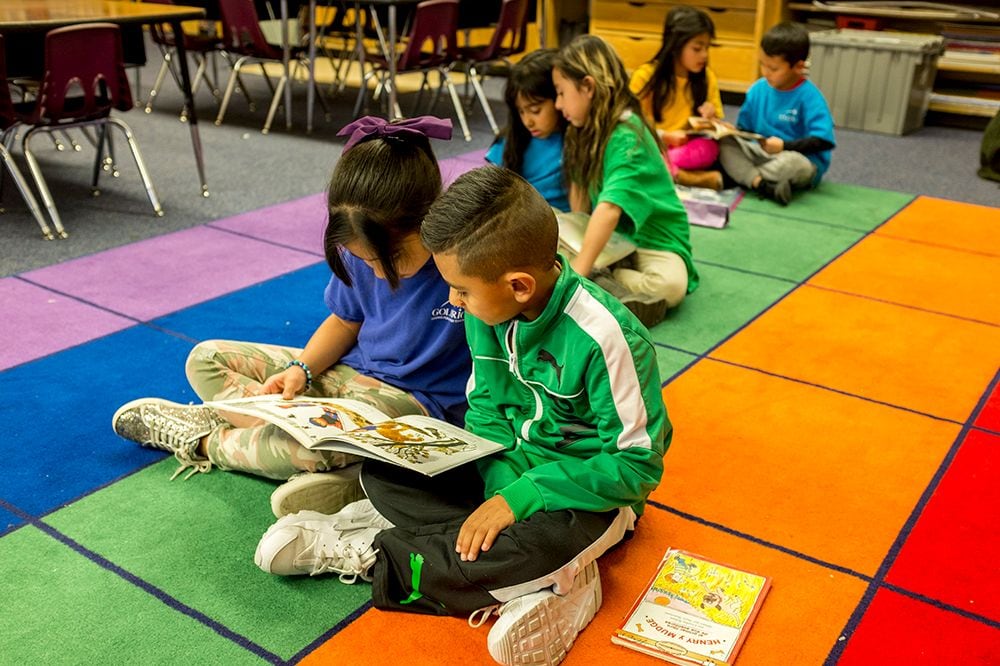Sign up for Chalkbeat Colorado’s free daily newsletter to keep up with education news in Denver and around the state.
Colorado teachers can get up to $1,000 toward classroom learning materials. Offer good while supplies last.
Colorado Education Commissioner Susana Córdova announced the grant opportunity — a partnership with the website DonorsChoose — at Westview Elementary School in Northglenn in the Adams 12 Five Star Schools district Thursday.
The money — $11 million in total — comes from federal pandemic relief money intended to help students recover from COVID learning disruptions. In their applications, teachers will have to describe how the materials will contribute to learning recovery. Examples could include equipment for science experiments, games and puzzles to bolster reading skills, or hands-on materials that help students learn multiplication or fractions.
Córdova said she knows teachers dig into their own pockets every year — sometimes to the tune of hundreds of dollars — to make their classrooms inviting and engaging places for learning. She said this grant complements other pandemic relief initiatives that aim to make bigger changes for lots of kids, such as paying for new curriculum or tutoring. By allowing individual teachers to apply for money, the state can match federal money to local needs and know the money “would go directly into classrooms.”
The money comes from the second round of federal pandemic relief. The state has until Sept. 30 to distribute that money.
“We know this will be very popular, and the funding probably won’t last very long,” Córdova said.
Second grade teacher Jenny Lage recalled a project she did last year in which her students used Play-Doh to build animal habitats that were displayed in a miniature art show. Her students loved it and learned a lot. They also had to make do with a single container of Play-Doh per child.
Having money to cover more materials means she can design more hands-on learning, and students stay more engaged, she said. It even means fewer behavioral problems.
Utah, Arizona, Nevada, and Oklahoma have done similar projects with pandemic relief dollars.
To participate, teachers should go to the DonorsChoose Colorado Instruction Page. DonorsChoose will review requests. Qualifying applications will typically be funded in two to five days. DonorsChoose will withhold its suggested donation and sales taxes from the grant amount.
The application is open now, and requests will be filled on a first-come, first-serve basis until the funding runs out.
Bureau Chief Erica Meltzer covers education policy and politics and oversees Chalkbeat Colorado’s education coverage. Contact Erica at emeltzer@chalkbeat.org.







